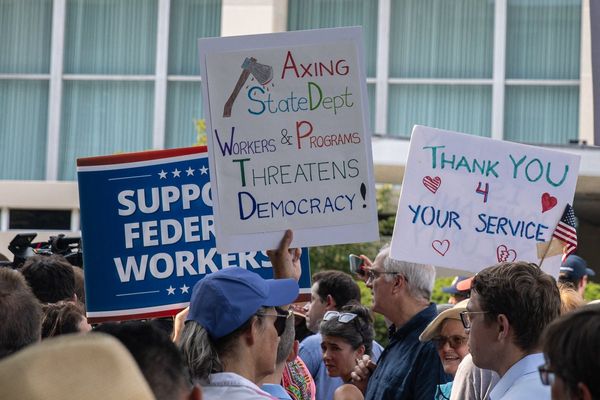
Beijing (AFP) - China and Honduras began formal diplomatic relations on Sunday, with Taiwan accusing Beijing of using "coercion and intimidation" to lure away its few remaining allies.
China's announcement of the move came shortly after Tegucigalpa said it had officially severed ties with Taipei.
"The two governments have decided to recognise each other and establish diplomatic relations at the ambassadorial level", effective immediately, China's foreign ministry said in a statement.
The switch cuts to 13 the number of countries that still diplomatically recognise Taiwan, which has lost several Latin American allies in recent years.
China considers the self-ruled, democratic island a part of its territory, to be retaken one day -- by force, if necessary.Under its "One China" policy, it does not allow countries to recognise both Beijing and Taipei.
Honduran Foreign Minister Enrique Reina and his Chinese counterpart Qin Gang signed a joint communique in Beijing, according to video released by state media outlet CCTV.
"China welcomes (Honduran) President Xiomara Castro to visit China at an early date," said Qin.
Earlier, Reina said that upon Castro's instructions he had "communicated to Taiwan the decision to cease diplomatic relations".
"The government of the Republic of Honduras recognises the existence of only one China in the world, and that the government of the People's Republic of China is the only legitimate government that represents all of China," the Honduran foreign ministry said.
"Taiwan is an inalienable part of Chinese territory."
Taiwanese President Tsai Ing-wen said the switch was part of "China's coercion and intimidation" of Taipei's allies.
"China has suppressed the international space of (Taiwan) for a long time, unilaterally endangering regional peace and stability," read a statement from her office.
In Beijing, Reina and Qin clinked champagne glasses in front of their countries' flags, while in Taipei, officials at the foreign ministry had removed the blue-and-white banners of their former ally.
'Pressure and intimidation'
Taiwan Foreign Minister Joseph Wu confirmed the severing of ties, accusing China of offering "financial incentives" to lure away the island's allies.
Earlier this month, Reina said economic necessity was behind his country's decision, and that the Honduran government had asked Taiwan to increase financial aid.
On Sunday, Wu said Castro's government had "demanded we provide billions of US dollars in financial aid".
Tegucigalpa, he said, had asked Taiwan to pay $90 million for a hospital and $350 million for dam, and to forgive $2 billion in debt, adding "it felt like what they wanted was money, not a hospital".
Honduras is one of the poorest countries in its region, with almost 74 percent of its nearly 10 million people living in poverty.Tegucigalpa's move followed negotiations with China on building a hydroelectric dam.
In a social media post, Tsai said Taiwan supported the "substantial development" of its allies.But, she added: "We will not engage in a meaningless cash diplomacy contest with China."
In its Sunday statement, China's foreign ministry said Beijing "stands ready to enhance friendly cooperation with Honduras in various fields to the benefit of our two countries and peoples".
Responding to Tegucigalpa's move, the American Institute in Taiwan said: "While Honduras' action is a sovereign decision, it is important to note the PRC often makes promises in exchange for diplomatic recognition that ultimately remain unfulfilled."
Dwindling recognition
Latin America has been a key diplomatic battleground for China and Taiwan since the two split in 1949 after a civil war.
Honduras's announcement continues a trend in the region, with Nicaragua, El Salvador, Panama, the Dominican Republic and Costa Rica all switching diplomatic recognition to Beijing in recent years.
The United States remains Taiwan's most significant ally, and largest weapons supplier, despite having switched recognition to Beijing in 1979.
This week, Taiwan confirmed that Tsai would depart on Wednesday to visit Guatemala and Belize -- two remaining diplomatic allies -- while also making stopovers in New York and Los Angeles.
Analysts linked the timing of Honduras's switch with Tsai's trip.
"This is a warning before Tsai begins her visit to Central America on March 29 and I think China will make more diplomatic moves during her visit," said Kuo Yu-jen, a political analyst at National Sun Yat-sen University in Taiwan.







